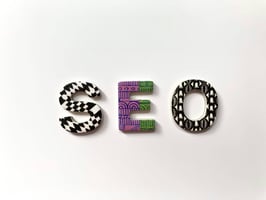The frustration of delayed SEO results is all too common. Many businesses expect quick wins but are...
E-Commerce SEO: Strategies for Ranking Your Online Store and Increasing Sales
In today’s digital age, having a strong online presence is crucial for the success of any e-commerce business. However, simply having an online store is not enough. To attract potential customers and drive sales, your e-commerce website needs to rank high in search engine results. This is where e-commerce SEO comes into play. In this post, we dive into the most effective strategies and techniques to optimise your online store for search engines, ultimately increasing its visibility and driving more sales.
Understanding the Importance of E-commerce SEO
The process of optimising the website and content of your online store to boost visibility in SERPs (search engine results pages) is known as e-commerce search engine optimisation (SEO). The higher your e-commerce website ranks in search results, the more visible it will be to potential customers who are actively searching for the products or services that you offer. Increased visibility leads to higher organic traffic, more qualified leads, and ultimately, improved sales and revenue.
Keyword Research: The Foundation of E-commerce SEO
The first step in any successful e-commerce SEO strategy is to conduct thorough keyword research. Keywords refer to the terms and phrases that users type into search engines like Google when looking for a certain product or service. By identifying the right keywords relevant to your e-commerce business, you can begin optimising your website to rank for these specific search queries.
Start by brainstorming a list of potential keywords related to your products or industry. Consider using tools like Google Keyword Planner, Moz Keyword Explorer, or SEM rush to gather data on search volume, competition, and related keywords. Aim for a combination of highly relevant and specific long-tail keywords, along with broader keywords with higher search volumes.
Not got the time? Check out our affordable SEO packages.
Optimising On-Page Elements for E-commerce SEO
Once you have a list of target keywords, the next step involves optimising your online store’s on-page elements. These elements have an essential role to play when it comes to search engine rankings and user experience. Some of the main on-page elements to focus on include:
- Title tags: Come up with unique and keyword-rich title tags for each page of your online store. Include your primary keyword and make sure that the title tag accurately represents the content on that page.
- Meta descriptions: Write attention-grabbing meta descriptions that entice users to click through to your website. While meta descriptions don’t directly impact rankings, they can have a significant impact on click-through rates.
- URL structure: Ensure that your website’s URLs are clean, concise, and include relevant keywords. Avoid using long, confusing strings of numbers or characters.
- Heading tags: Use heading tags (H1, H2, etc.) to structure your content and highlight key sections of your website. Where possible, incorporate your target keywords naturally within the headings to signal their importance to search engines.
- Product descriptions: Write unique and compelling product descriptions for each item in your e-commerce store. Focus on providing valuable information to potential buyers, while naturally incorporating relevant keywords.
- Image optimisation: Optimise your product images by using descriptive file names and adding alt tags containing relevant keywords. Not only does this improve SEO, but it will also improve accessibility for visually impaired users.
Technical SEO for E-commerce Websites
Along with optimising on-page elements of your site, paying attention to technical SEO aspects is crucial for e-commerce businesses. Technical SEO ensures that search engine crawlers can efficiently crawl, index, and understand your site. Some of the key technical SEO considerations for online stores are as follows:
- Website speed: Page loading speed is an essential factor in both SEO and user experience. Optimise your website’s performance by compressing images, minifying JavaScript and CSS files, and leveraging browser caching.
- Mobile responsiveness: With the increasing number of users accessing the internet with mobile devices, it is now essential to ensure that your e-commerce website is mobile-responsive. Make sure that your website is optimised for mobile viewing and offers a seamless, user-friendly experience across different devices and screen sizes.
- Site structure and navigation: Create a logical site structure that allows both search engines and users to easily navigate through your online store. Use clear, descriptive category names, implement breadcrumb navigation, and ensure that the menu structure is user-friendly.
- XML sitemap: Generate an XML sitemap for your e-commerce website and submit it to search engines. A sitemap helps search engines understand the structure and content of your website, ensuring that all pages are indexed and easily discoverable.
- SSL certificate: Make sure that your website is secured with an SSL certificate. This not only establishes trust with your customers, but also provides a ranking boost in search results, as search engines prioritise secure websites.
- Canonical tags: Use canonical tags to avoid duplicate content issues. If you have similar product pages or multiple versions of the same page, a canonical tag will help search engines understand the preferred version to index.
- Schema markup: Implementing structured data will provide additional context and information to search engines. Schema markup helps search engines display rich snippets in search engines, such as product ratings, reviews, and pricing information, which can help to improve click-through rates.
Content Strategy for E-commerce SEO
Content plays an essential role when it comes to improving e-commerce SEO. Content that is high-quality, relevant, and engaging not only attracts more organic traffic to your site, but also encourages users to stay on your website and make purchases. Some content strategies to boost e-commerce SEO include:- Blogging: Start a blog on your e-commerce website and regularly publish informative, engaging content related to your products, industry trends, and customer pain points. Incorporate relevant keywords naturally within your blog posts to improve search engine visibility.
- Product reviews and descriptions: Encourage your customers to leave reviews for the products that they have purchased. User-generated content (UGC) such as reviews, adds credibility to your online store and can improve search engine rankings. Plus, you should make sure each product description is unique, detailed, and optimised with relevant keywords.
- Video content: Create product demonstration videos, tutorials, or other informative videos related to your industry. Video content is highly engaging and can help improve your website’s visibility in search results, particularly on platforms like YouTube.
- User-generated content: Along with product reviews, leverage other types of UGC such as social media posts and product photos shared by your customers. Doing this adds authenticity to your brand and can improve search engine rankings.
Link Building and Off-Page SEO
Building high-quality backlinks to your e-commerce website is essential for improving its authority and search engine rankings. However, it’s essential to focus on acquiring natural, relevant backlinks from reputable sources. Some strategies for effective link building include:
- Guest blogging: Contribute guest blogs to authoritative blogs and websites in your industry. Include links back to your online store within the content or author bio, which can drive referral traffic and improve search rankings.
- Influencer partnerships: Collaborate with influencers or industry experts to create content, reviews, or sponsored posts that link back to your e-commerce store. Not only does this drive traffic, but it can improve your website’s authority.
- Online directories and local citations: Submit your e-commerce website to relevant online directories and local business listings. Ensure that the business information, such as the name, address, and phone number, is consistent across all citations, as this can help improve local search visibility.
- Social media engagement: Actively engage with your audience on social media platforms. While social media doesn’t have a direct impact on SEO, social signals can indirectly impact search rankings. Because of this, it’s worth encouraging social sharing of your content and products.
Monitoring and Analytics
Regular monitoring and analysis of the performance of your e-commerce SEO efforts is essential for ongoing optimisation and improvement. Use tools like Google Analytics and Google Search Console to track important metrics like keyword rankings, conversion rates, organic traffic, and bounce rates. Some key areas to consider include:
- Organic traffic: Keep an eye on the overall organic traffic to your e-commerce website. Monitor any fluctuations and identify trends or patterns that might have an impact on your SEO strategy.
- Keyword rankings: Track the rankings of your target keywords in search engine results. Identify keywords that are performing well and those that may need further optimisation.
- Conversion rates: Monitor the conversion rates of your e-commerce store, including analysing which traffic sources and keywords are driving the highest conversions.
- Bounce rates: Bounce rate refers to the percentage of visitors who leave your website without interacting with it. High bounce rates might indicate issues with content relevancy or user experience.
- Backlink profile: Regularly review your backlink profile to ensure that you are acquiring high-quality, relevant backlinks. Monitor any toxic or spammy links and disavow them if needed.
- Competitor analysis: Keep an eye on the SEO strategies your competitors are using and how they are performing. Identify areas where they are outperforming you and find opportunities for improvement.
Implementing effective e-commerce SEO strategies is vital for boosting your online store’s visibility, attracting traffic, and increasing sales. We know that not every e-commerce owner has the time or expertise to do this successfully. Contact us today to find out more about how we can help you boost SEO for your e-commerce store.
Want to learn more about SEO? Check out our beginners guide to SEO or sign up for it below!




